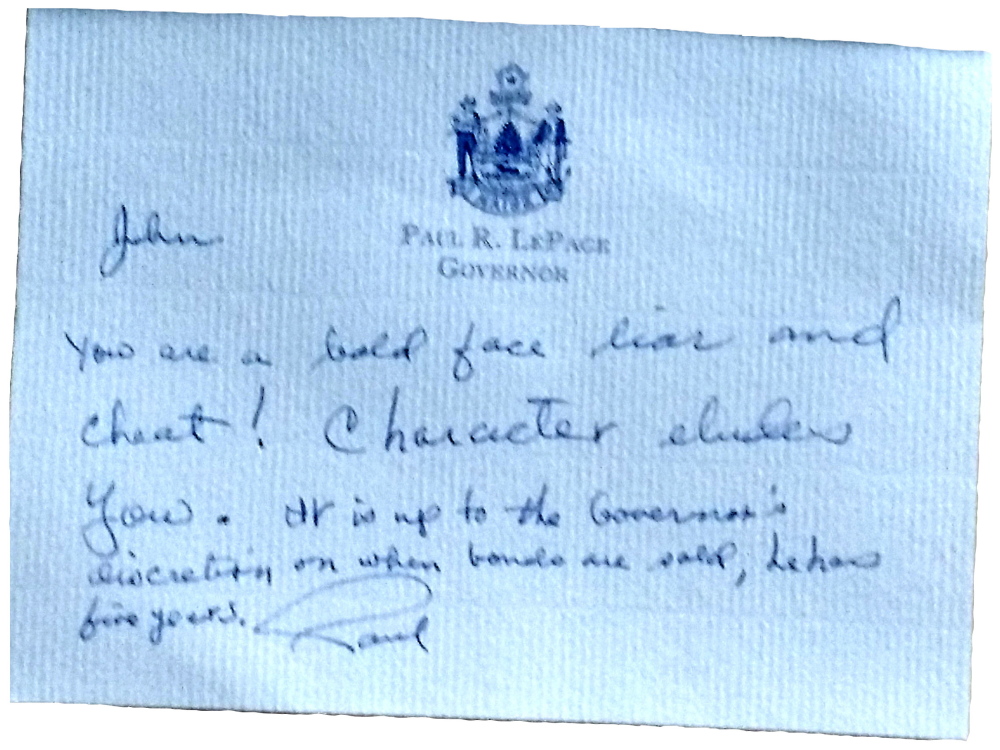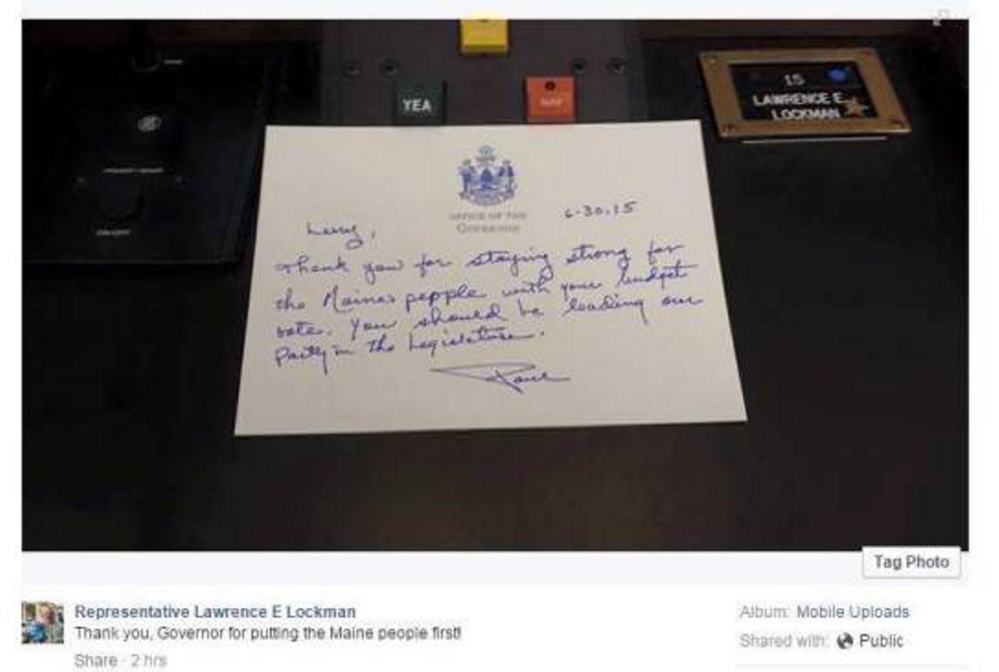Fans of Gov. Paul LePage, and some who are not his fans, often say they like the outspoken way he expresses himself.
Whether you agree with him or not, they say, you always know where he stands and you always know where you stand with him.
But the governor has shown himself to be uncharacteristically shy when it comes to his written communications.
The governor regularly fires off handwritten notes on official stationery to constituents, lawmakers and other public officials. But he does not retain copies of them, claiming that because these messages are personal communications, they are not subject to public records laws. Unless the recipient of the note makes it public, the missive disappears from the record, leaving government watchdogs and future historians in the dark.
This is a big problem.
Maine’s Freedom of Access law is a pillar of an open and effective government, but if it’s this easy to skirt, it will be rendered meaningless. If the Legislature needs to update the law’s language to close a loophole, it should do so. If the courts need to rule on whether LePage’s interpretation of the law is wrong, someone needs to file a lawsuit.
Letting the current situation exist will create a precedent for secret communications by public officials that could undo 40 years of progress.
BAD PRECEDENT SET
State law defines a public record as “any written, printed or graphic matter … that is in the possession or custody of an agency or public official of this state … .”
Exceptions are made for confidential information, such as Social Security numbers and privileged court documents, but the definition is intentionally broad.
Over the years, the law has been expanded to included email and other electronic communications. There has never been an exemption for documents that are handwritten.
The administration claims that these notes are personal communications, but a review of the few that have become public poke giant holes in that argument.
In one, the governor informs Senate President Michael Thibodeau, R-Winterport, that he plans to veto every single bill that comes to his desk in response to the Legislature’s actions that would, in the governor’s view, infringe on his constitutional powers.
In others, he chastises lawmakers who voted against him and praises those who vote his way. And he recently told a constituent that he viewed the entire southern half of the state to be “corrupt.”
NOT BIRTHDAY CARDS
These are not birthday cards. This is a public servant doing official business and these communications belong in the public record just as if they were typed up and stamped with the state seal.
One of these notes could be a key piece of evidence in an investigation into allegations that LePage abused his power.
After Good Will-Hinckley Inc. hired House Speaker Mark Eves, D-North Berwick, to serve as its president, LePage sent a long and public letter expressing his bitter opposition to the move. He also reportedly sent a handwritten note to the chairman of the organization’s board of directors, which promptly met and withdrew its job offer to Eves. LePage later said he planned to withhold state money budgeted for the organization if it didn’t knuckle under.
If Eves considers that to be a “personal” attack on him, that’s understandable. But it’s not “personal communication” the way the governor and his lawyers claim
If an email or a social media post by the governor or one of his staff members is a matter of public record, so to should notes that can be instruments of state policy.
LePage should not get away with flouting this law any longer.
Send questions/comments to the editors.




Comments are no longer available on this story